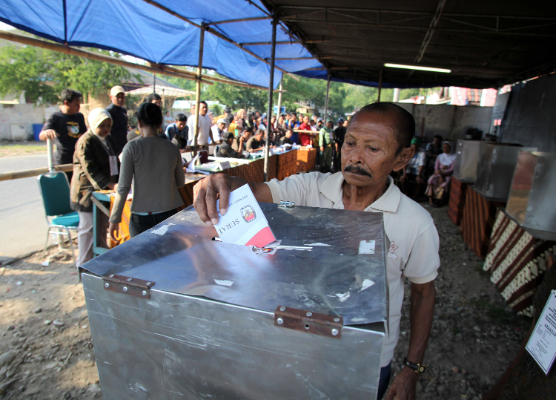Indonesia votes on February 14 to choose the next member of Parliament and local representatives.
The world’s third-largest democracy is one of the world’s biggest exporters of coal, nickel and palm oil, and the next government will have a keen role to play in the contest that is panning out between the United States and China for influence in the region.
Over 50% of the voters are below the age of 40 with the minimum voting age set as 17.
The Jokowi era
Joko Widodo is stepping down after two five-year terms. Popularly referred to as Jokowi, he carried out one of the biggest economic reforms that the country has seen.
During his tenure, he brought about a universal health care system, strengthened welfare programmes and helped the economy to grow respectively at 5%.
The outcome will determine the future of democracy in the country, which has the world’s largest Muslim population.
Who is in contention?
The main contestants include Prabowo Subianto, the current defence minister; Anies Baswedan, the former governor of Jakarta; and Ganjar Pranowo, who ran Central Java.
Pranowo is a polarising choice for many Indonesians having married to one of Suharto’s daughters and served as a general in his military, which was notorious for human rights violations. He was discharged from the army for ordering the kidnappings of student activists.
Ganjar has said that he would continue with most of Joko’s policies with many describing him as “Jokowi lite.”
Voters in Jakarta hold him in high regard for bringing about infrastructure changes in the capital. But voters are also wary of his ties to radical Islamist preachers.
The issues and how the vote will take place
Most of the voters in the country are concerned about the economy, education, employment and eradicating corruption. About 205 million are registered to vote.
Over six million officials are panning out across the country to ensure smooth voting.
Unlike elections elsewhere, the voters will cast their votes by hammering nails into them, which election officials say is a fairer method than using a pen.
While the votes are counted, officials hold the ballots up so people can see light shining through the hole.
Unlike other countries like India, where elections are carried out across phases, Indonesia votes only on one day.
In a career spanning three decades and counting, Ramananda (Ram to his friends) has been the foreign editor of The Telegraph, Outlook Magazine and the New Indian Express. He helped set up rediff.com’s editorial operations in San Jose and New York, helmed sify.com, and was the founder editor of India.com.
His work has featured in national and international publications like the Al Jazeera Centre for Studies, Global Times and Ashahi Shimbun. But his one constant over all these years, he says, has been the attempt to understand rising India’s place in the world.
He can rustle up a mean salad, his oil-less pepper chicken is to die for, and all it takes is some beer and rhythm and blues to rock his soul.
Talk to him about foreign and strategic affairs, media, South Asia, China, and of course India.





